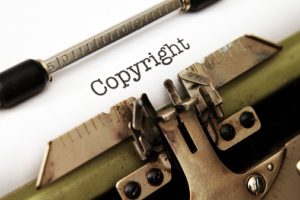 The U.S. Copyright Office released its long-awaited report on Section 512 of Title 17 late last week. The Report is the culmination of more than four years of study by the Office of the safe harbor provisions for online service provider (OSP) liability in the Digital Millennium Copyright Act of 1998 (DMCA). Read more
The U.S. Copyright Office released its long-awaited report on Section 512 of Title 17 late last week. The Report is the culmination of more than four years of study by the Office of the safe harbor provisions for online service provider (OSP) liability in the Digital Millennium Copyright Act of 1998 (DMCA). Read more
Tag: actual knowledge
Twenty Years Later, DMCA More Broken Than Ever
 With Section 512 of the DMCA, Congress sought to “preserve[] strong incentives for service providers and copyright owners to cooperate to detect and deal with copyright infringements that take place in the digital networked environment.”[1] Given the symbiotic relationship between copyright owners and service providers, Congress meant to establish an online ecosystem where both would take on the benefits and burdens of policing copyright infringement. Read more
With Section 512 of the DMCA, Congress sought to “preserve[] strong incentives for service providers and copyright owners to cooperate to detect and deal with copyright infringements that take place in the digital networked environment.”[1] Given the symbiotic relationship between copyright owners and service providers, Congress meant to establish an online ecosystem where both would take on the benefits and burdens of policing copyright infringement. Read more
Capitol Records v. Vimeo: Courts Should Stop Coddling Bad Actors in Copyright Cases
Here’s a brief excerpt of my new post that was published on IPWatchdog:
Here’s where we are after Capitol Records v. Vimeo: A service provider can encourage its users to infringe on a massive scale, and so long as the infringement it encourages isn’t the specific infringement it gets sued for, it wins on the safe harbor defense at summary judgment. Read more
BMG v. Cox: ISP Liability and the Power of Inference
Cross-posted from the Law Theories blog.
As readers are likely aware, the jury verdict in BMG v. Cox was handed down on December 17th. The jury found that BMG had proved by a preponderance of the evidence that Cox’s users were direct infringers and that Cox is contributorily liable for that infringement. Read more